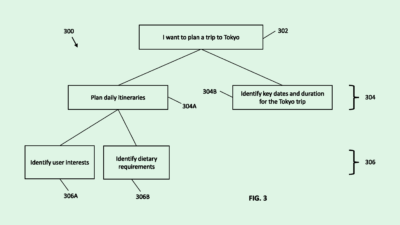IMF Warns AI Is Coming for Jobs in High-Income Countries
The International Monetary Fund warned almost half of all jobs worldwide could be affected by artificial intelligence.

Sign up for smart news, insights, and analysis on the biggest financial stories of the day.
No matter what language you speak, you might need to become fluent in ChatGPT, Bard, and Llama to feel more secure at work.
The International Monetary Fund warned almost half of all jobs worldwide could be affected by artificial intelligence. In some cases, that effect is beneficial, increasing productivity and wages. For the rest of us working stiffs, the advent of AI will likely not be so kind.
The Obsolete Man
Every few generations, the labor force faces another disruptive technology. In the early phases of the Industrial Revolution, those who quickly adapted to heavy machinery like steam engines and cotton gins were the ones who succeeded. Starting in the 1920s, if you could type, you were more likely to get an office job. In the age of the internet, coding is one of the most desirable skills for modern-day, white-collar workers. And now, AI is in the same position to benefit those who can use it — and replace those who can’t.
The IMF declared that AI could impact 60% of jobs in high-income nations, 40% in emerging economies, and 26% in low-income countries. In many instances, that would mean a loss of jobs and worsening income inequality. In a blog post, IMF chief Kristalina Georgieva said policymakers around the world should be concerned about this “troubling trend” and create new regulations “to prevent the technology from further stoking social tensions.”
- Some professions will be greatly exposed to AI, but the technology will be complementary to work, not a replacement. The IMF said it doesn’t see a future where AI displaces jobs like surgeons, lawyers, and judges — highly intricate roles that can’t just be handed off to unsupervised tech, thanks to legal and ethical barriers.
- The IMF considers jobs like telemarketing “high-exposure but low complementarity,” meaning cold-callers offering goods and services will likely face legitimate job threats from AI. But more manual and expressive careers appear to be in the clear — a piece of software isn’t about to start washing dishes or portraying Alexander Hamilton on Broadway.
Global Public Interest? The report could provide some food for thought as this year’s World Economic Forum, which kicked off Monday in Davos, Switzerland. But confidence in the WEF has waned in recent years with many feeling it’s out of touch with the event’s original goals. To address global poverty and climate change, you invite a bunch of billionaires on a ski-networking trip and offer them private jets and $43 hot dogs? No wonder this year’s theme is “Rebuilding Trust.”











